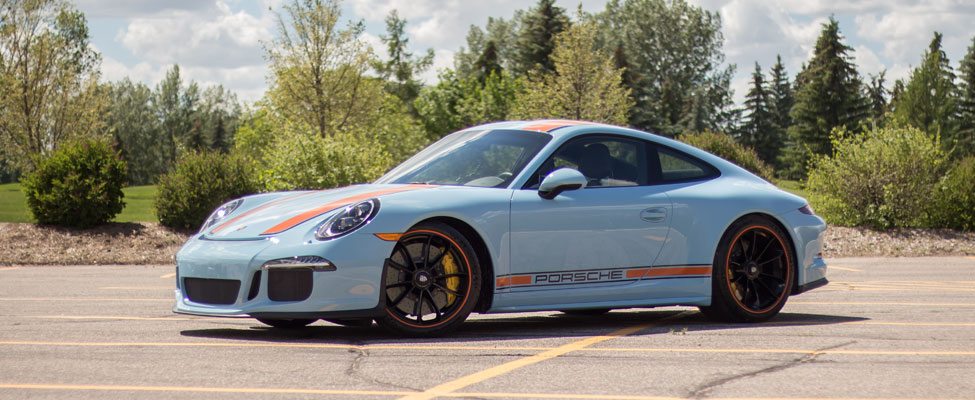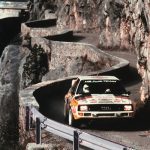Celebrating Porsche’s 70 Year Anniversary – 7 ways Porsche stands out
Ferry Porsche registered the first Porsche 356 for the road on June 8th, 1948 and his vision has shaped the Porsche manifesto for 70 years. Porsche has since become a dream car for millions, and we thought it would be fitting to celebrate the many milestones created on the way to becoming the iconic brand it is today.
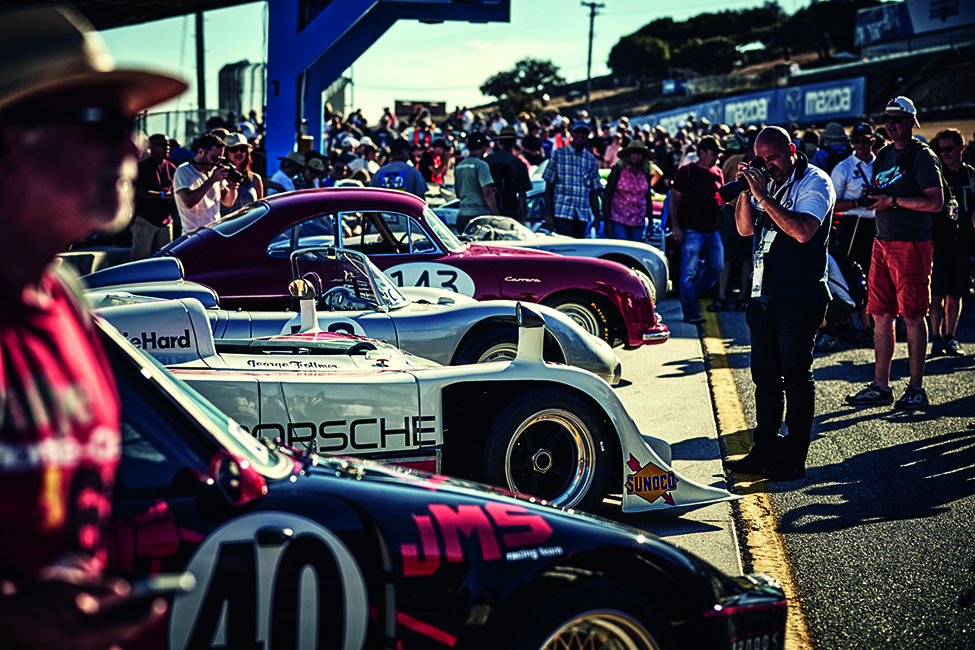
1 – THE 911
Throughout its history, Porsche has long stood out by producing exceptional sportscars. The 356, unveiled in 1948, would set the standard for future sportscars and go on to be extremely successful. The 911 would follow in 1964 as its successor and set the benchmark for all sports cars – a standard that lives on today. Interestingly, the 911 was originally named 901, but following a claim from Peugeot that this constituted an infringement on their ownership of the naming rights, it would be renamed to become the legendary 911.
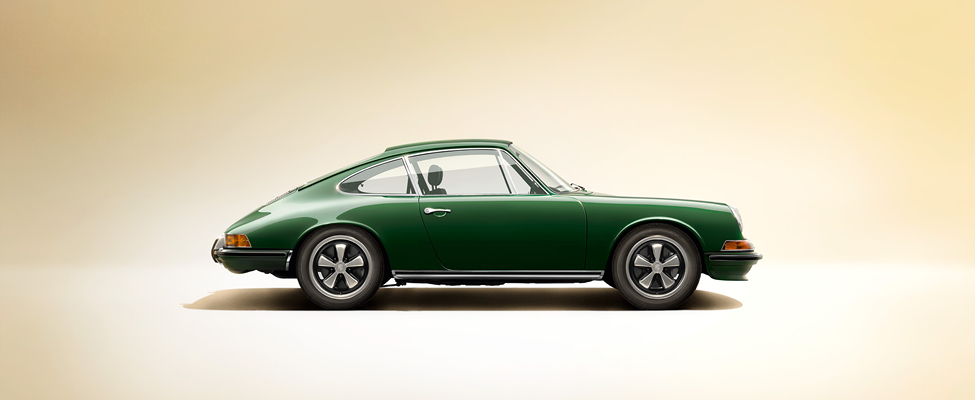
From its iconic shape to an engine located behind the rear axle, the 911 has stood apart from everything else on the road and played a monumental role in shaping what the Porsche brand is today. Like no other vehicle, the 911 has managed to combine the very unique qualities of sportiness, driving pleasure, practicality, tradition and innovation. It’s become an icon for all the right reasons.
2 – UNRIVALLED MOTORSPORT SUCCESS
The Porsche brand has a legendary heritage of wins, pole positions, drivers and manufacturer’s championships, and lap records in the world of motorsport. Just three years after the first 356 was built, Porsche earned its first of many class victories at the storied 24 hours of Le Mans at the Circuit de la Sarthe. In fact, with 19 overall wins, Porsche holds the record for the most race victories at Le Mans. This record is a testament to the brand’s ability to develop tremendous race cars both in terms of speed and reliability, and also speaks to how Porsche engineers can think “outside of the box” to gain precious seconds on the track.
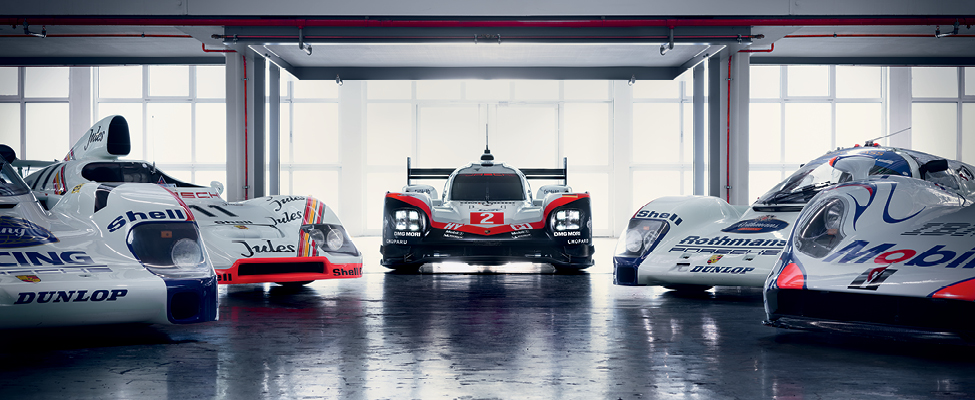
That said, don’t think for a moment that the brand’s success is limited to Le Mans. From winning iconic races such as the Monte Carlo Rally, the Paris-Dakar Rally, the 24 hours of Daytona and the 24 hours of the Nürburgring to dominating many GT and endurance championships and building the most successful German racing engine in Formula 1, Porsche has stamped its authority on just about every category of motor racing.
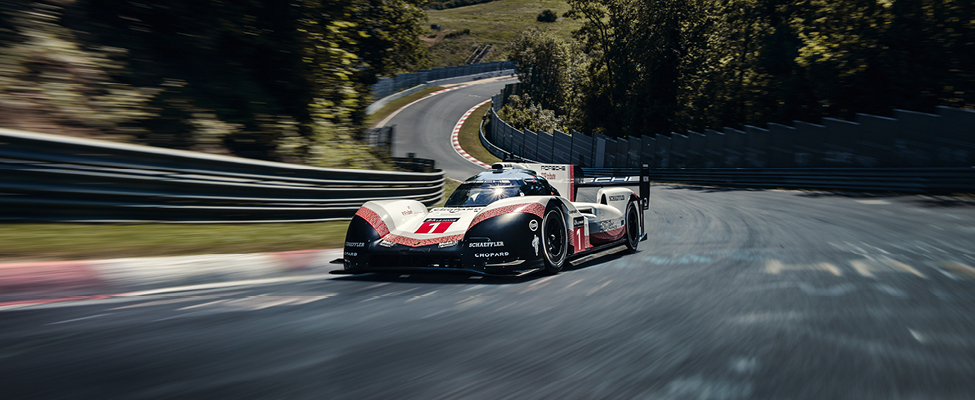
As Porsche looks to the future, it is preparing to enter its own works team in Formula E for 2019, in a bid to further develop key technologies related to the deployment and harvesting of electric energy, and contribute to the development of road-going electric vehicles. Further, Porsche continues to develop its hybrid prototype Porsche 919 Hybrid that won three consecutive Le Mans 24-hour races in 2015, ‘16 and ‘17. Because the new iteration of the car – the 919 Evo – does not compete in an official championship, Porsche engineers have been able to unleash all the possibilities conferred by its hybrid powertrain – and recently obliterated a 35-year old lap time record at the Nürburgring. In fact, the previous record was held by Stefan Bellof and was accomplished at the wheel of a Porsche 962. Porsche retained its grip of both the all-time record and the production car record for the Nürburgring Nordschleife, established last September 2017 with the 911 GT2 RS. All things considered, Porsche and motorsport go hand in hand, and we tip our hat to the brand for its amazing success, continued innovation and pursuit for the top step of the podium.
3 – CATERING TO THE CUSTOMER
“In the beginning, I looked around and could not find quite the car I dreamed of. So, I decided to build it myself.” Often misattributed to Ferdinand Porsche, this famous quote was actually spoken by his son Ferry Porsche. This idea not only serves to explain the creation of the brand; it also offers a stark reminder that Porsche was founded on a failure from other car manufacturers to cater to the needs of the individual.
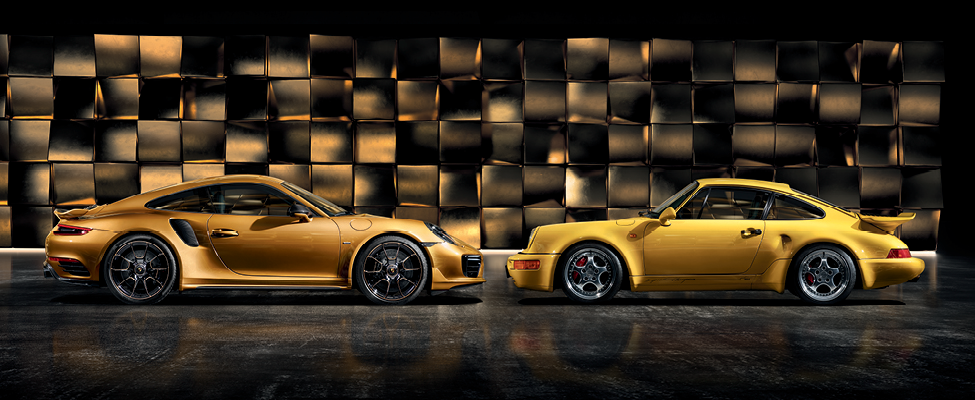
Since then, and now more than ever, the Porsche brand has become known for its ability to cater to distinct identities and personalities through vehicle customization. The brand’s endeavour to customize vehicles for specific customers and tasks began early on. In 1978, an official department – the “special requests departments” – was created to work on special projects and modifications to production cars. The program took the name of Porsche Exclusive in 1986, and today, it bears the entire name of the place where these vehicles are conceived: Porsche Exclusive Manufaktur.
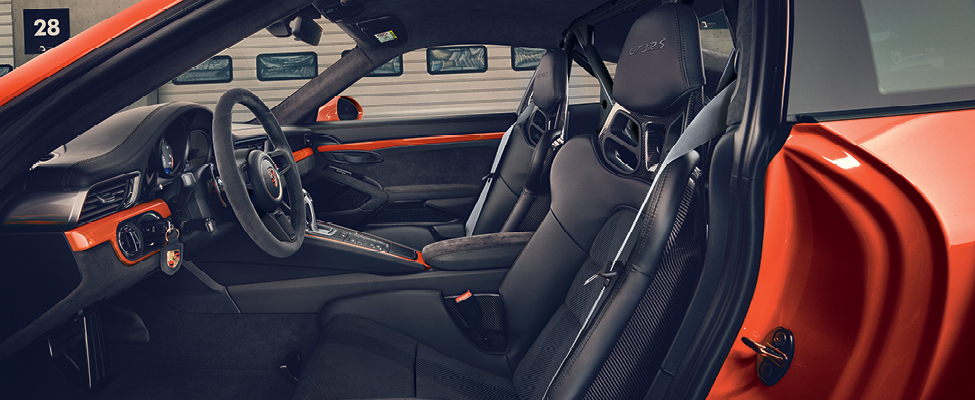
The heart of Porsche Exclusive Manufaktur lies with the department’s ability to cater to the personality and identity of each and every Porsche customer, thanks to a wide breadth of personalization options. These can range from minor changes to extensive modifications, for the exterior or interior of the vehicle. Through Porsche Exclusive Manufaktur, the customer can maximize passion, uniqueness and personality. In addition to this, the department produces Special Editions and Limited Series vehicles with the primary goal of showcasing the incredible expertise of those within the department, as well as celebrating milestones and motorsport successes. Needless to say, Porsche’s ability to cater to the customer has become one of its defining features.
4 – GT DIVISION
Porsche’s GT division has produced such iconic cars, we thought it deserved a full section in this article. Headed by Andreas Preuninger, the GT division has grown considerably since its introduction with the 996 911 GT3 RS in 1999. It currently offers a model line of GT cars comprising the GT2, RS models, as well as R and Touring versions. Porsche cars were always very motorsport-oriented, and the GT division serves in some ways as a link between the brand’s road cars and its race cars, with some models sharing many components with the Porsche Cup cars. How closely related to a race car are GT Porsche’s, you ask? Consider this: in 2010, the brand entered a factory standard 911 GT3 RS at the Nürburgring 24 hours race; it placed 13th overall out of over 200 participating vehicles, and after the race, Porsche simply drove it another three hours back to the factory in Weissach!! Today, you can get from the factory an FIA-approved fire extinguisher, a roll cage and bucket seats in your GT3 and in fact, Porsche estimates that 85 percent of its GT3 RS models are regularly used on the track. Porsche’s GT division is all about pushing the limits to the next level, and they do it so well that they struggle to keep up to the demand.
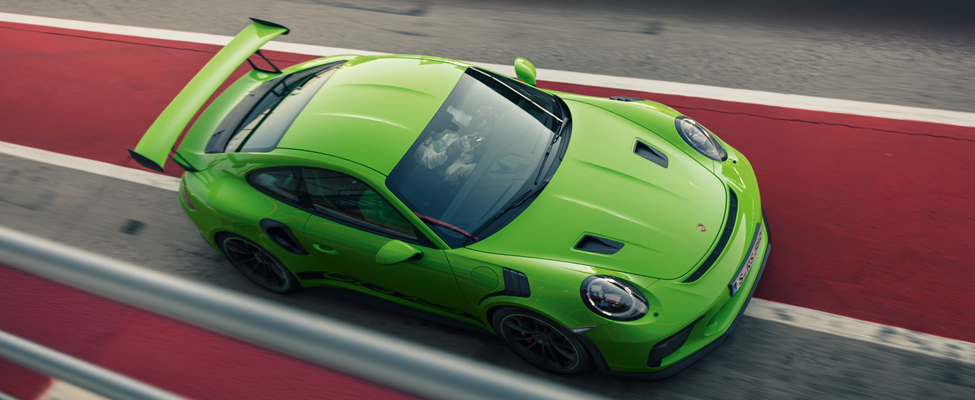
5 – BRANCHING OUT
Porsche’s current lineup of models may look familiar, but the brand’s decision to introduce Sport Utility Vehicles and a four-door luxury sports sedan was a brave decision. Porsche did this long before most rival sports car manufacturers, and it was questioned at the time whether it was right for Porsche to produce such vehicles. In the end, we’re absolutely pleased they did, for many reasons. In many ways, Porsche brought their DNA of driving pleasure to their SUV’s and to the Panamera. Making such vehicles allowed Porsche to expand and survive in a competitive market, and have more resources to produce the sportscars that aficionados and traditionalists desire. Finally, we’re glad because these vehicles are amazing and sublime all-rounders. For the Canadian market, it means being able to drive a Porsche year-round, no matter the conditions, and we’re certainly pleased about that!
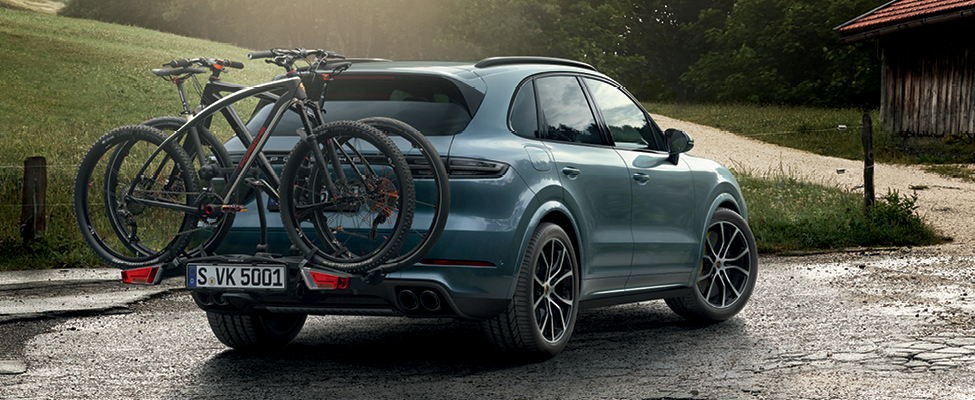
6 – LOOKING TO THE FUTURE
Through its dedication to designing the world’s best sports cars, the Porsche brand has always continued to innovate. In the last decade, Porsche has progressively embarked on an ambitious mission to master electric propulsion. It first developed and entered the 911 GT3 R Hybrid in the 2010 24 hours of the Nürburgring in order to evaluate electric technology and develop its performance and reliability. The result? In a pack of 200 cars, the 911 GT3 R led the race for a total of eight hours thanks to being able to go 25% further on each tank of gas. The car agonizingly retired with less than two hours to go in the race, but Porsche didn’t give up with their long-term goals. And deliver on those ambitions, they surely did. In the last few years, Porsche has released the 918 Spyder, a mid-engined plug-in hybrid sports car and the first production car to beat the seven-minute mark at the Nürburgring. Porsche also recorded three consecutive overall wins at the 24 Hours of Le Mans with the 919 Hybrid. Looking to the future, series production of the first purely electric Porsche – the Taycan – is set to begin next year. It promises to be an outstanding vehicle, with a 0 to 100 km/h time well under 3.5 seconds and a 0 to 200 km/h in under twelve seconds, combined with a projected range of over 500 km. Needless to say, our team at the Wyant Group is excited to see how Porsche will continue to produce fantastic sports cars that are both in touch with tradition and geared towards innovation.
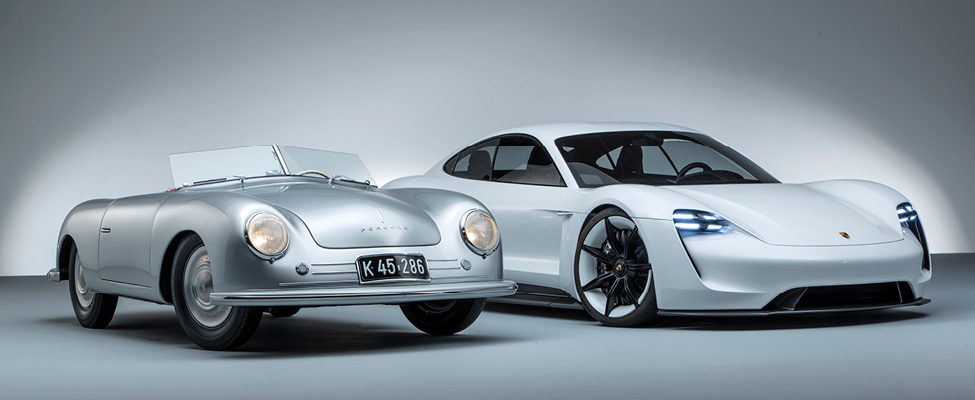
7 – SOMETHING TO DREAM ABOUT
Ultimately, there’s a reason why Porsche has amassed an army of fans and loyal customers: the brand gives everyone something to dream about. From the iconic look of the 911, featured on countless residence walls, to the hypercars produced like the 959, Carrera GT and 918 Spyder, Porsche has always been able to ignite a flame in the hearts of car enthusiasts. Add to the list the tremendous craftsmanship that goes into building Porsches, success on the racetrack, and ability to cater to customer requests and preferences, and it’s easy to see why Porsche has some of the most sought-after sports cars on the planet and boasts a worldwide community of loyal owners and fans.
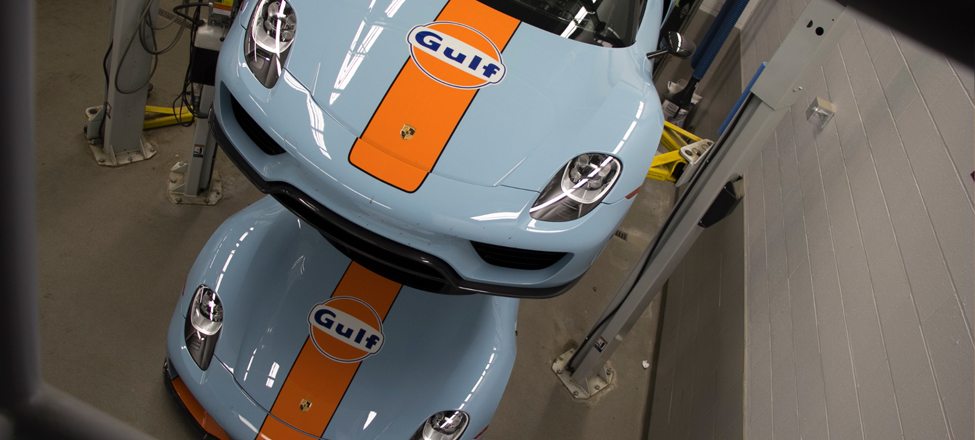
A unique example of this lives at the Wyant Group. Vaughn Wyant, the founder of the auto group, effectively commissioned two unique 918s in heritage racing colours, as well as the only factory authorized Gulf livery 911 R Porsche with documentation. Affectionately coined the “twins”, the 918s are a fabulous commemoration to the famous Porsche 917 Ks that raced at Le Mans in 1970 and 1971 and were featured in the iconic Steve McQueen film Le Mans. These are the only two factory authorized, Gulf livery, period correct, 918 Gulf Porsches in the world. Vaughn’s passion for Porsche serves as a perfect example of how Porsche has built an unmatched following over its 70 years of existence, and our team at the Wyant Group is excited to see what the next 70 years of Porsche bring us!
